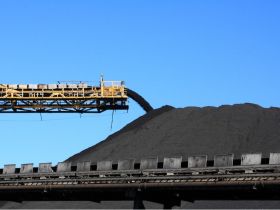Gas shortages loom as concerns grow over Russia – EU summit
Quantum Commodity Intelligence – EU leaders on Friday flagged the likelihood of further disruptions to Russian gas supplies, accusing Moscow of "weaponising" energy, while warning that cheap fossil fuel is a thing of the past.
The concerns come as the row over gas supplies intensified, with Europe accusing Russia of deliberately reducing gas flows, which Germany warned could partly shut its industry, while Moscow has blamed the non-return of equipment for the Nord Stream 1 pipeline sent to Canada for maintenance.
"We need to be prepared to deal with more disruptions in Russian gas deliveries," European Commission president Ursula von der Leyen told a press conference in Brussels, as reported by the EU Observer, following a summit on how to guarantee gas supplies for next winter.
Von der Leyen said the EU executive will present an "emergency-demand reduction plan" in July, adding that all national contingency plans have been revised to ensure that member states are able to cope with further gas supply reductions or cut-offs.
"There will be no return to cheap fossil fuels [from Russia]," she also said, saying that the root of the current energy crisis is Europe's addiction to fossil fuels.
Benchmark Dutch TTF futures for July have gained around 50% since 14 June, but eased around €5/MWh Friday to close the week at €128.505/MWh.
Reduction
As Moscow tightens gas supplies across the bloc, widespread concerns over Russia completely suspending gas supplies to Europe have increased in recent weeks, with the EU Observer quoting diplomats saying it was only a question of time before Russia shuts off supply completely, at least on an intermittent basis.
"Although there is no immediate security of supply risk, there might be consequences for the refilling of storages for next winter, in case the reduction is prolonged," an EU official told EU Observer.
Overall, Russia's state-owned Gazprom has cut off, or reduced, gas supplies to 12 member states.
The Kremlin has turned off supplies to some EU countries for refusing to pay for gas in roubles — including Poland, Romania, Bulgaria, Finland, and the Netherlands.
Germany, the Czech Republic, Italy, Austria, and Slovakia have also faced reduced gas delivery volumes, prompting some countries turn back to coal for power generation.
Several nations have issued an "early warning" on national gas supply as a precautionary move — notably Italy, Latvia, Croatia, Austria, Finland, Estonia, Denmark, Netherlands, and Sweden.


